The Letter: Mick Conway reflects on the climate crisis in Derry and globally
and live on Freeview channel 276
The film is based on Pope Francis’s encyclical ‘Laudato si’. The Catholic Church may appear as something of a late comer into the environmental debate but Pope Francis chose his papal name because he was a member of the Franciscan order.
Modern day environmental concerns were absent from the 12th century when St. Francis was preaching but part of his message was respect for all of creation.
Advertisement
Hide AdAdvertisement
Hide AdTales about the early Irish saints illustrate their connection with nature. St. Columcille was famous for his love of animals, with the exception of the Loch Ness Monster.
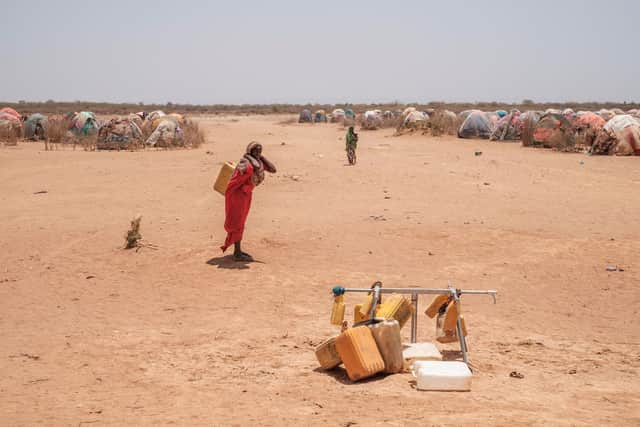

There are many stories of St. Patrick’s encounters with animals but snakes were not on his list of favourite fauna.
The top award for the most environmentally aware Irish saint goes to St. Kevin who, while praying in his tiny cell, allowed a blackbird to build a nest in his outstretched hand, lay eggs and raise its chicks, (estimated time six weeks).
‘Kevin feels the warm eggs, the small breast, the tucked
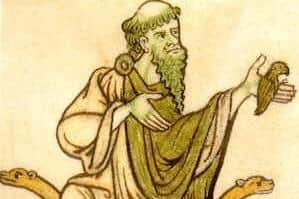

Neat head and claws and, finding himself linked
Into the network of eternal life,
Is moved to pity’.
Seamus Heaney, Saint Kevin and the Blackbird.
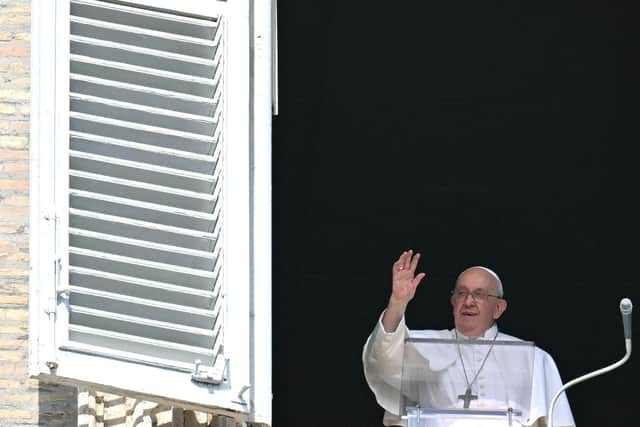

They don’t make environmentalists like they used to! Nevertheless, the film is based on the witness of modern St. Kevins from Senegal, Brazil, India and Hawaii.
Advertisement
Hide AdAdvertisement
Hide AdThey discuss the work they have done in tackling the problems of ecological destruction in their own countries. Senegal suffers directly from the consequences of global warming.
Caught between coastal erosion and drought, many Senegalese make the dangerous crossing to the Canary Islands to try and find a better life in Europe.
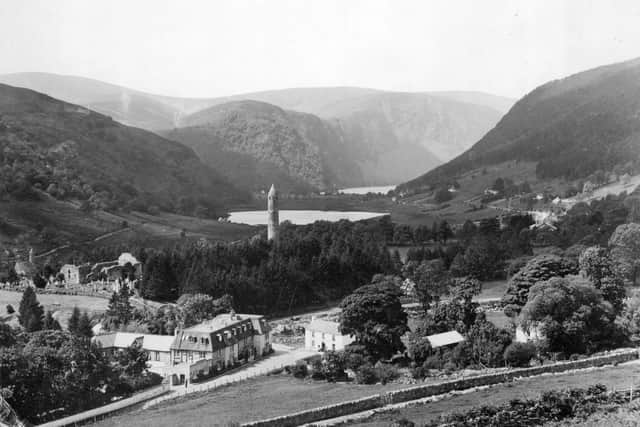

The Brazilian was an indigenous chief whose people were suffering from the exploitation of the Amazon forest. The Indian girl was a young environmental activist.
The two scientists from Hawaii were studying the depletion of coral reefs due to the increased acidity of the ocean and the extreme high temperatures experienced worldwide in recent years.
Advertisement
Hide AdAdvertisement
Hide AdEvery day there is a barrage of media reports on global warming and the related issues of habitat destruction and the loss of biodiversity both locally and worldwide.
This week there are reports in the media of a 70 per cent reduction in wildlife worldwide over the past 50 years.
Insect life including bees and butterflies have seen similar reductions in the developed world. Almost all species of Irish and European birds have seen a drastic reduction in their numbers.
The drivers of this decline are well- known: climate change, industrial style farming, pesticides, fungicides, drainage schemes, habitat destruction, invasive species and pollution of every kind.
Advertisement
Hide AdAdvertisement
Hide Ad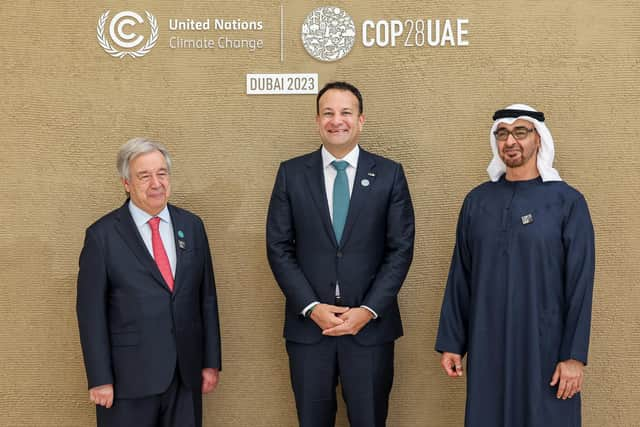

The media has highlighted the discrepancies between the rich and poor in developed countries where the vast majority of pollution is caused by the rich 10% who account for 50% of pollution.
The same is true of the wider world. Rich nations are causing most of the problems of global warming but poor nations are being devastated by its consequences.
Working for Concern, a developing world charity, our various campaigns relate directly to the consequences of global warming, for example droughts in Somalia and Zambia and floods in Mozambique.
The British government has wrapped itself in legal knots with regard to the Rwanda flights. Many of the immigrants they seek to send to the modern equivalent of Van Diemen’s Land have escaped from the Sahel region of Africa which has been ravaged for decades by drought and drought related conflicts.
Advertisement
Hide AdAdvertisement
Hide AdUnlike many parts of the world, in Ireland, we seem to be insulated from the worst effects of this crisis but the pollution of Lough Neagh and the floods in Newry and other towns are warning signs that we are reaping the consequences of neglecting our surroundings.
Reports in the media are all very informative but we are all aware of the changes happening all around us.
I first moved to Derry fifty years ago. In that time the winters as we knew them no longer happen. There is very little snow or frost. As predicted by climate experts decades ago, we seem to live in a permanent autumn characterized by warmer temperatures and increased rainfall.
The demise of much of our wildlife is difficult to assess as the absence of things is hard to monitor. Just a few years ago I used to see lapwings, (a common farmland bird in my youth), on a patch of rough wet ground on the Buncrana Road that has since been developed.
Advertisement
Hide AdAdvertisement
Hide AdBefore the ground was developed the lapwings had disappeared. Like many birds that rely on marshy ground to breed, research shows that the lapwing numbers slumped so badly that it is classed on the ‘red list’, in danger of extinction as a breeding bird in Ireland.
There is much disappointing news with regard to efforts to control global warming and habitat decline. The British government has sanctioned the building of a coal mine in Cumbria and the extension of exploitation of North Sea oil.
The recent bye-election for Boris Johnson’s old seat was won by the Conservatives partially because they opposed the extension of clean air policies.
Sales of gas guzzling CUVs [crossover utility vehicles] have reached 40% percent of the Irish new car market. Nothing was done to prevent turning Lough Neagh into a cesspit and there seem to be no plans to rectify it.
Advertisement
Hide AdAdvertisement
Hide AdThe COP28 United Nations conference, which takes place in the United Arab Emirates, has the main aim of reducing the level of carbon dioxide, the major cause of global warming.
World leaders including the Pope are due to attend. Alarmingly even before it began there were reports that its president Dr Sultan al-Jaber was using the event to promote oil and gas deals. We may want to do the right thing but like St. Augustine ‘not yet’.
The devastation of global warming was brought home in the film by the life story of Arouna Kandé from Senegal. Poverty forced him from his village when he was only nine.
He was alone when he heard news both his parent had died. While filming, he heard the sad news that his friends had drowned while trying to cross from Senegal to the Canaries. Undefeated, he has dedicated his life to helping disadvantaged children like himself.
Advertisement
Hide AdAdvertisement
Hide AdMany people are aware of the twin crises we face, global warming and biodiversity destruction. There are many local efforts being made to rectify the problems. We are all recyclers now – the bin system allows us no choice.
The new greenways from Derry to Moville and Faughan Valley to Ness Woods are long- lasting initiatives allowing access to the countryside for many people.
In many places in Donegal I see local volunteers clearing litter from the roadsides. On a global scale we rely on government and inter-government cooperation to really tackle the crises we face.
By showing the film, the Steelstown and Culmore group have made an effort to raise awareness. Pope Francis has contributed his voice to the solutions of this crisis.
Advertisement
Hide AdAdvertisement
Hide AdHis day job is to be leader of the Catholic Church. This crisis transcends that role. The problem is existential. The worst-case scenario is that we go the same way as the lapwing on the ‘red list’, in danger of extinction. Without action there may be none of us left to be Catholics or any other religion or any other form of human being.